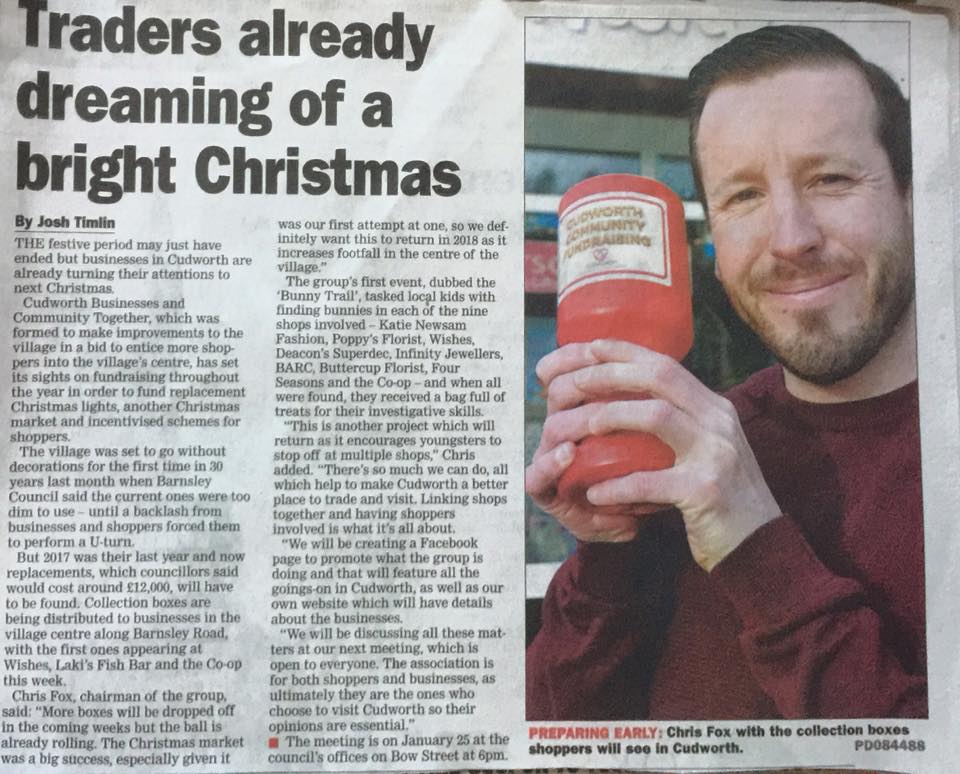
Chris Fox, founder of the Gift Shop Hub (and marketing maestro of card and gift shop Wishes of Cudworth) ponders the health and wealth of the British high street.
Sorry about the purposely provocative headline:’ 5 things that are destroying our high streets’. Do I really think our high streets are doomed? No, of course not, to suggest that we should packing it all in and start focusing on the next super trendy fad, like say Bitcoins, is not the conclusion of this opinion piece. But there’s no doubt about it that life for small independents on the high street is tough. But instead of moaning about it, there’s plenty we can be doing to make the high street a destination again.
I’m quoting the Greeting Card Association Market Report 2017 here: “The UK greeting card industry is worth more than it has ever been before in its history. The public spent an incredible £1.75 billion on greeting cards in the last calendar year, up £500,000 on the year previous”.
Yay, well done everyone, high fives all round. This is certainly something to celebrate but equally it’s good to be aware of the potential pitfalls that a small shop may face. I could have easily added increasing business rates and a weaker £pound but I really wanted to avoid politics and Brexit. Also, as an eternal optimist I’ll not apologise for looking for positives even in these uncertain financial times.
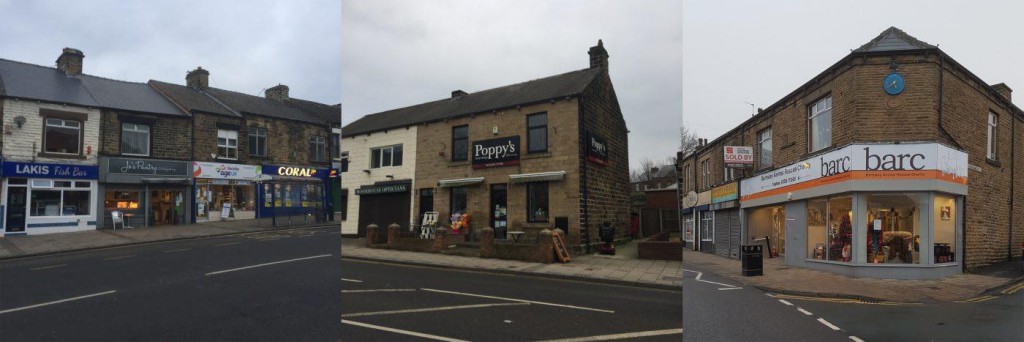
So, let’s consider the shape of the high street in 2018…
1. The Internet
The Problem: People shop online. It’s cheaper and more convenient. Amazon and eBay are the Goliaths to our plucky independent heroes. Over the festive season footfall was down on many high streets with businesses pointing to the success of online retailers and a rise in ecommerce. More consumers are spending time researching products online rather than heading out to our bricks and mortar shops to browse.
The Answer: The Internet isn’t our enemy. It’s a powerful ally and one that every small shop should embrace. Yes people are browsing online but all that means is there are more opportunities for us to engage with potential customers. From social media, (if you’ve not got a Facebook business page then what are you waiting for?) to a website of your own (even if you don’t sell online, it’s still a wonderful advertising for your shop and products). I’ve written about this many times before over on my blog so when you’ve finished reading this please feel free to pop over to Wishes of Cudworth to take a look.
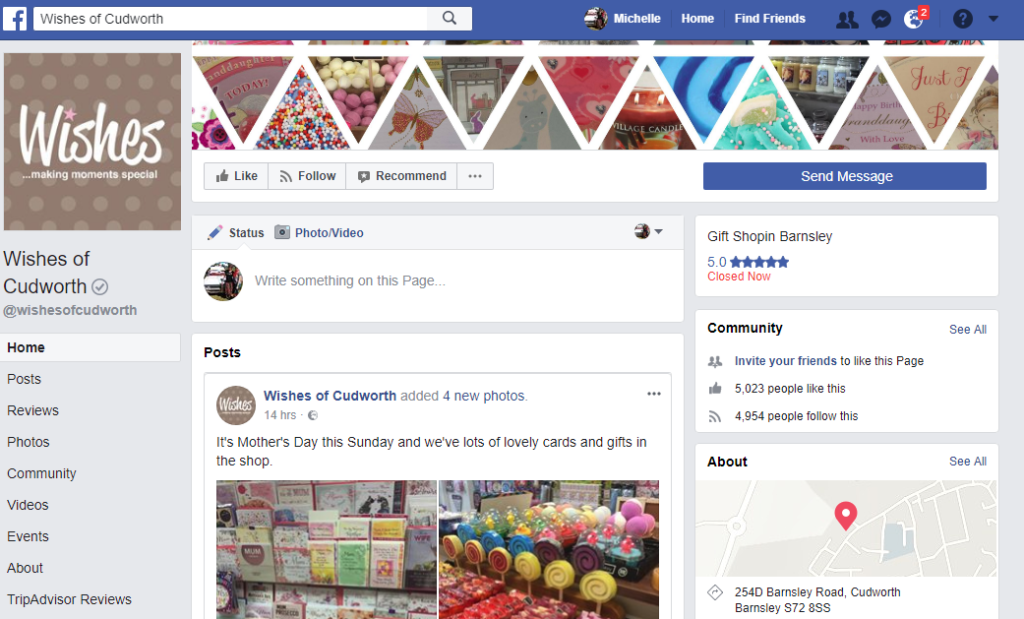
2. Banks closing
The Problem: Does your village have a bank branch? The likely answer is a resounding no. It’s a familiar story across the country and unfortunately it’s having a knock on effect on our high streets. While banks will highlight an increase in online banking, many older people prefer to use an actual bank, with real people. It comes down to trust, especially when online fraud is increasing daily. There’s comfort in dealing with another human being, to know that you’ve physically handing your money over. As a result many people will travel into their town/city centers to bank. And then do some shopping too. Meaning our village shops lose out of their trade.
The Answer: Post offices. Often overlooked is that most post office branches, no matter how small, offer banking services. Spread the word that the answer is not a trip into town, with parking fees, stress and crowds but rather to shop locally, using the local services that already exist.
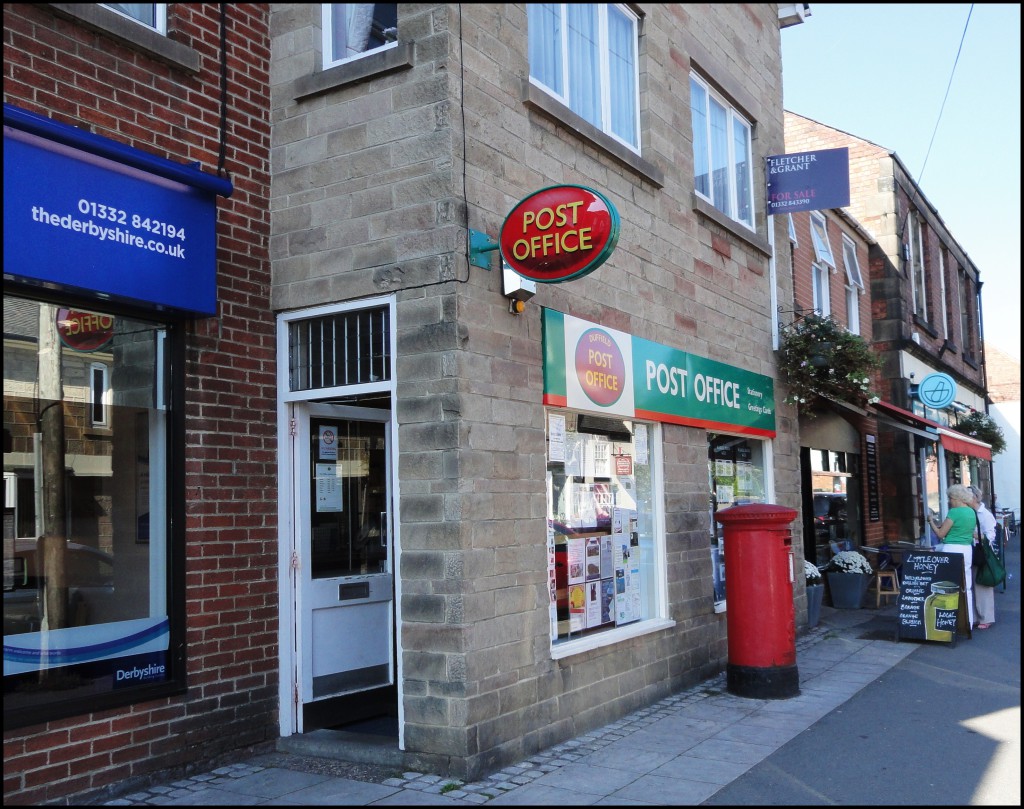
3. Supermarkets and bargain stores
The Problem: People don’t have the time/are lazy (please delete depending how kind you feel!) to do their shopping. The answer is a weekly shop. The hectic blur of the modern world means that life is a juggling act and that more and more people will do their ‘big’ once-a-week shop in the same place. Often this is at one of the larger supermarket chains and worst still for the high street they tend to be located out of town. Add in online food shopping and more people are favouring convenience. Indie shops are also facing increased competition from discount shops who offer high street brands at prices that retailers struggle to match. It’s not uncommon to see once premium brands like Yankee Candle for sale in these bargain superstores.
The Answer: Be wily with your card and gift selections. Search out those quirky, exclusive and locally made products that the bigger shops won’t touch. Be bold in your choices and don’t be afraid to be different. Support the small independent suppliers, like one of our personal favourites: WishStrings. By being smart and thinking out side of the box you’ll build a reputation as a purveyor of exciting and unique giftware.
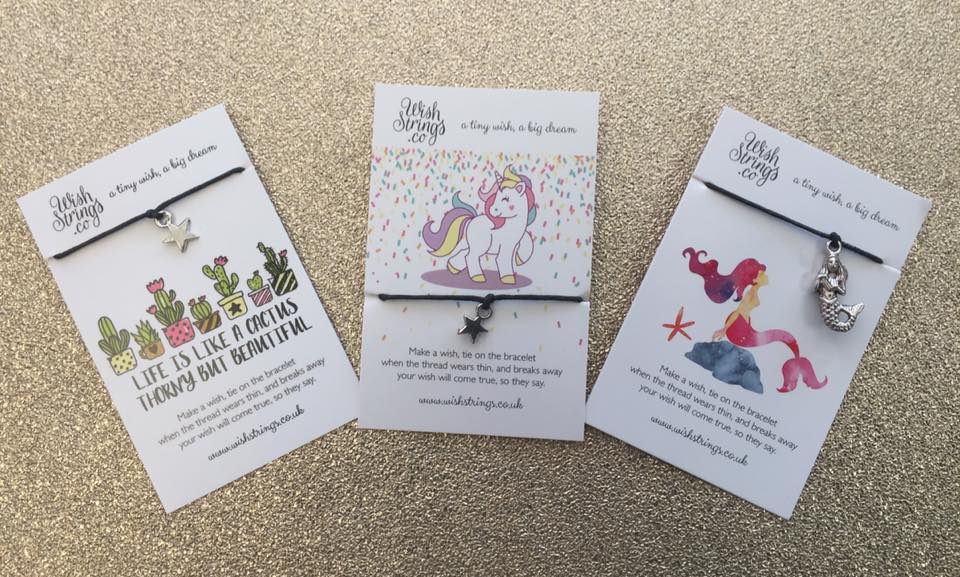
4. No community
The Problem: As we confine ourselves to virtual worlds, the only way we are social is through Facebook. Community spirit has almost vanished in modern Britain with many people admitting they didn’t even know their neighbours’ names. Shop owners can often view other shops as competition and so fail to see the value of working together to create a better high street. It’s not just the community of your area but the community of your shops too.
The Answer: Get involved with your community. Network with your fellow shop owners, link up with local charities and schools. We’ve gone one step further and set up our own community association: Cudworth Businesses & Community Together. Formed to make improvements to the village in a bid to entice more shoppers onto the high street. I’m quoting myself here, which is a bit weird: “We want to create harmony between all members of the community. Linking local businesses, schools, groups, clubs and residents to participate in programs and events that create and enhance the feeling of community”.
We’ve set our sights on fundraising throughout the year in order to fund replacement Christmas lights, put on another Christmas market and come up with incentivised schemes for shoppers. You can read more about our group by following this link: https://visitcudworth.co.uk/cudworth-businesses-and-community-togther/

5. A lack of new and unique shops
The Problem: I was talking to a resident in Cudworth (the village where our shop is based) about an empty shop unit that was about to become home to a new retailer. “What’s it going to be?” she asked “A book shop, shoe shop or butchers maybe?” she excited guessed. “Vape shop” I shot back. “Another one,” she snorted “How scummy”. Now I don’t have anything against the vapers, I’m sure they’ll be a smashing addition to the high street but people want destination shops, something I’ve covered before on PGBuzz: https://www.pgbuzz.net/counterpoint-chris-fox-of-wishes-cudworth/
The Answer: We’re hoping that our community association’s project will encourage new businesses to set up in Cudworth. We’re exploring the concept of ‘Pop Up Shops’ for long standing empty units and have created a new website called Visit Cudworth. As shop owners and staff we’re taking responsibility to work with the council and residents to build the best possible Cudworth. If all this results in more people visiting the high street and then popping into our shop, then that can only be a very good thing indeed.
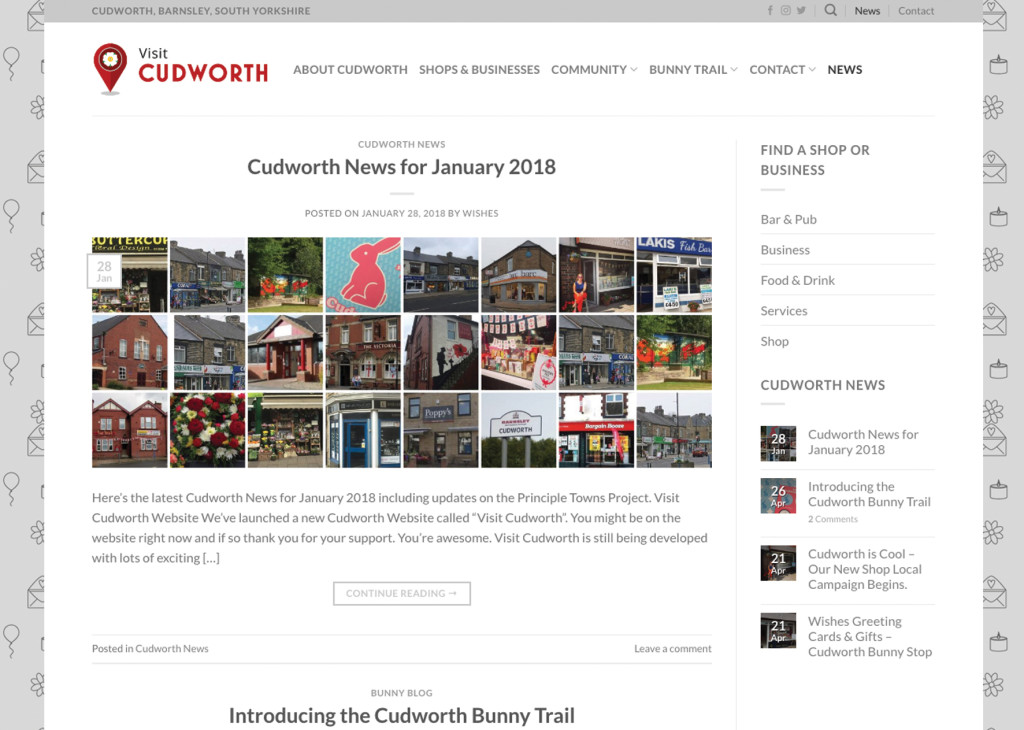
About Chris: Chris Fox is a 39 old graphic designer from Chesterfield, Derbyshire. A rock music lover (vinyl collecting is a new obsession), biscuit connoisseur (Granola bars are a current favourite) and all round geek (He always gets way too excited when anything Star Wars related comes into the shop).
He works for Wishes of Cudworth an independent greeting card and gift shop in Cudworth, Barnsley (South Yorkshire) owned and run by Julia Keeling (his love partner). As well as restocking the biscuits supplies (of which he has eaten) he also produces the shop’s point of sales (posters, leaflets, stickers), designs the website (www.wishesofcudworth.co.uk) and runs its social media (Twitter, Instagram and www.facebook.com/wishesofcudworth).
He also has a love of Terry Prachett, Game of Thrones, jogging down the local canal and Sunday day trips to craft fairs/antique centres. With Julia he owns a four pet rabbits called Molly, Pedro, Huckleberry and Harley who help inside the summer event, the Cudworth Bunny Trail.
